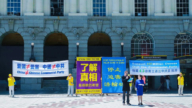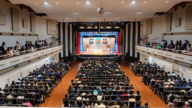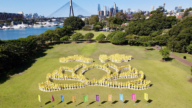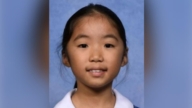【新唐人2011年4月28日訊】澳大利亞總理吉拉德訪華,與中共總理溫家寶舉行了會談,吉拉德表達了澳大利亞對中國人權記錄的擔憂。她的擔憂包括中國的少數民族政策,宗教自由問題,以及最近中國對人權活動的鎮壓。不過溫家寶暗示,“中國在人權問題上沒有後退”。但遭到民眾強烈反彈。
澳總理吉拉德首次以總理身份訪華。 4月26號,她與溫家寶舉行了為時45分鐘的談話。
據了解,吉拉德在和溫家寶的會談結束後對媒體記者表示,除了經貿議題外,她也明確的向溫家寶表達了澳大利亞在中國人權問題上的態度,她說:“澳大利亞希望中共不要在人權問題上開倒車。” 但溫家寶回應,他不認為中國的人權狀況是在倒退。
對於溫家寶的答復,澳總理是否感到滿意呢?吉拉德表示,自己作為澳大利亞總理,以適當的方法提出澳方的觀點,這點她已經做到了。
《法新社》26號在《澳總理訪華提人權 溫家寶否認倒退 民眾駁斥》的報導中,提到了中國民眾的反應,報導說:他們例舉了目前非常典型的案例:自茉莉花革命以來,中共至少抓捕了上百人,並加強對宗教信仰團體打壓,藝術家艾未未“失蹤”、北京維權律師金光鴻遭到嚴重迫害,被送進精神病院等,中共既沒有道德底線也沒有法律底線,又怎麼會否認人權倒退?
居住在澳大利亞的獨立中文筆會秘書長張小剛,向《美國之音》表示,吉拉德提及人權做的只是表面文章。他說,“這只是一個官式文章而已。”
《美國之音》報導說,就在吉拉德訪華前夕,澳大利亞羅伊國際政策研究所4月25號發佈的一項民意調查顯示,雖然有75%澳大利亞人認為中國的經濟發展對澳大利亞有利,但卻有將近三分之二的受訪者表示,如果中國的實力和影響力提升,澳大利亞的利益未必不會受到傷害。
《澳大利亞人報》23號以“總理呼籲美國提升在亞洲存在感”為題報導說,吉拉德在最近出訪日本,同日本首相菅直人會談時表示,面對中國崛起,美國提升在亞太地區的政治參與,對這一地區的安全至關重要。
報導中提到,中國軍費連年增長,讓周邊的日本和韓國都感到“不安”,他們對中國的所謂“擴張”,非常擔心。
《悉尼先驅晨報》22號也以“吉拉德的防禦談話增添中國緊張”為題,報導吉拉德在日本強調,將繼續推動澳日安全防務合作,增強同韓國的關係。報導認為,美國在中國周邊構建安全網,這將增添中國的不安…。
《路透社》發自北京的電稿分析說:吉拉德與中國(共)領導人的會談目標,凸顯了澳大利亞和其他西方國家面臨的尷尬挑戰,他們既希望在人權和地區摩擦問題上刺激中共,同時又渴望培養與中國的貿易關係。澳大利亞想在逢迎和抨擊中共之間尋找平衡,但尤其棘手。
新唐人記者唐睿、吳慧真綜合報導。
Australian PM Spotlights China’s Human Rights
In her visit to China, Australian Premier Julia Gillard
spoke with the Chinese Premier Wen Jiabao .
about her concerns of China’s human rights record,
ethnic minorities issues, religious freedom,
and the treatment of human rights activists.
Wen denied China’s human rights regression.
Julia Gillard spoke with Wen Jiabao on April 26
during her first visit to China as a Prime Minister.
Gillard said her talks focused on trade relations,
as well as human rights issues.
“I did have the opportunity
to raise with Premier Wen issues
associated with Australia’s concerns
with human rights", Gillard told reporters.
“He did indicate his view is China has not taken
a backward step on human rights."
When asked if she was satisfied
with Wen’s response, Gillard replied,
“What we do is raise our concerns and
I’ve done that very clearly with Premier Wen today."
According to AFP’s April 26 report, Wen’s reponse
has deeply disappointed the Chinese public.
The public questions the human rights situation
in China, pointing to recent cases of human rights
violation, including the arrest of Jasmine Rallies’
participants, suppression of religious groups,
the disappearance of Ai Weiwei,
and the persecution of lawyer Jin Guanghong.
Zhang Xiaogang, Secretary General
of Independent Chinese PEN Center told VOA
that he believes Gillard’ mention
of human rights was “only superficial formality”.
According to a recent LOWY institute poll,
79% of Australians believes China’s economic
development will benefit Australia;
yet nearly 2/3 of the people surveyed worried that
the rise of China would pose a threat to Australia.
The Australian reported that during her recent visit
to Japan, Gillard told Japanese Prime Minister
Naoto Kan, it is vital that the U.S. lift its political
engagement in the Asia-Pacific region
to promote security in the face of the rise of China.
Both leaders discussed the “expansion” of China,
which has been increasing its military budget
to the consternation of nearby nations,
including Japan and Korea.
According to Sydney Morning Herald, Gillard
“has moved to strengthen defense ties with Japan
and will seek to elevate links with South Korea,
adding to China’s unease about new U.S.-anchored
security networks emerging on its borders.”
Reuters notes that Gillard’s meetings with Chinese
leaders “highlight the awkward challenges
facing Australia and other Western governments:
the desire to prod Beijing over human rights
and regional friction while nurturing trade ties
with the world’s second biggest economy.”
NTD reporters Tang Rui and Wu Huizhen






























